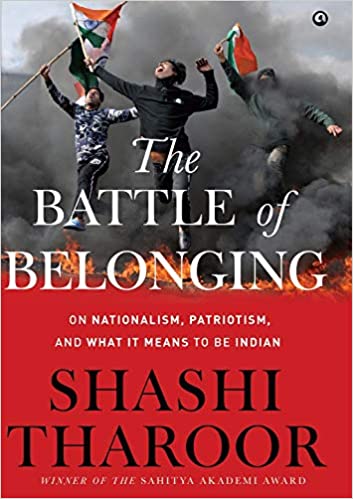This book is about nationalism, a phenomenon that, as Tharoor points out, emerged on the world stage as recently as the mid nineteenth century, but has proven to be an enormously potent political force. When the power of a ruler was no longer enough to hold a territory together, the idea of a nation—as a sense of a common belonging—was born to serve this purpose. In his book’s first section, Tharoor briefly describes nine different kinds of nationalisms: ethnic, cultural, linguistic, religious, territorial, revolutionary, anti-colonial, diaspora and civic nationalisms. The second section of the book refers to the anti-colonial movement in India which led to the end of British rule, and is also about how India’s journey as an independent country began with the coming together of civic nationalism and liberal constitutionalism: here, ‘the sense of nationhood inheres in institutions, practices, and systems enshrined in a Constitution and reaffirmed regularly through a democratic vote’ (p. 33).
The third and fourth sections of this work deal with the policies of the BJP which are—undermining this civic nationalism and seeking to replace it with a pernicious form of ethno-nationalism with its roots in Savarkar’s and Golwalkar’s theory of Hindutva. Tharoor covers the familiar ground of how policies such as the Citizenship (Amendment) Act, laws against ‘love jihad’, and the targeting of all critical and dissenting voices are pushing India down a precipice.

